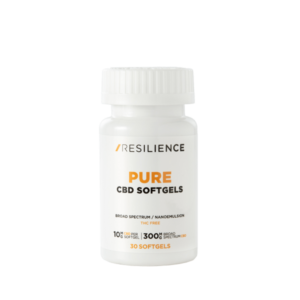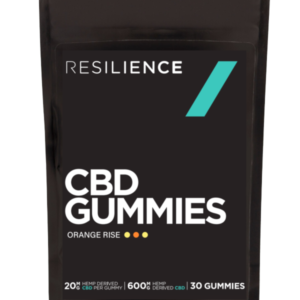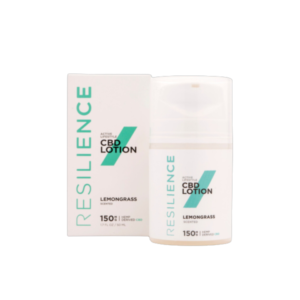
So, you’re sitting at your desk, trying desperately to finish a project before the deadline. But the entire time, you’re struggling to settle down and focus. Instead of thinking about the task at hand, your thoughts are a distracting jumble of did I remember to move my laundry to the dryer? Did I pack my running shoes for the gym later? Should I focus on arms or abs today? Maybe after my workout I should stop by the store to get Candace’s birthday present…
Wait. What was I supposed to be focusing on, again?
We’ve all been there.
Luckily, there are techniques to turn off the soundtrack in your mind and finally focus on the task at hand. These five natural ways to improve your concentration level and attention span are a fantastic place to start—as long as you can make it through the list without getting distracted.
Key takeaways:
- Good health makes for better concentration skills, including improved sleeping habits, regular exercise, and a balanced diet of nutritious foods.
- For lots of people, mental focus and concentration are learned skills. They don’t always come automatically, but they can be achieved through practice.
- Regular CBD supplements are one of the simplest and quickest ways to improve concentration skills.
#1 Get A Good Night’s Sleep
Nighttime sleep lays the foundation for daytime functioning. It’s like recharging your batteries before venturing out on a long hike. If your batteries are only semi-charged, you won’t get as much use out of them—the same goes with your sleep-deprived brain.
According to a study that measured reports of distracting thoughts and off-task behavior, even 16 fewer minutes of sleep can result in an increase in cognitive interference. Waking up earlier, sleeping for shorter periods, and getting lower quality sleep all contributed to decreased functionality and productivity.
Caffeine has been shown to reduce and even reverse the effects of sleep deprivation on someone’s attention span and alertness, but this is only a temporary fix. The real solution is to prioritize your nighttime rest starts with:
- Sticking to a consistent sleep schedule
- Eliminating distractions
- Reducing stimuli before bed (yes, that includes scrolling through Instagram, playing Candy Crush, and binge-watching Netflix)
- Cutting out stimulants like caffeine and nicotine, especially in the afternoon and evening
If you’re not sure how to improve concentration, start by getting genuinely restorative sleep. You won’t just feel more alert the next morning, you’ll enjoy increased concentration throughout the entire day (without relying on latte after latte).
#2 Exercise Your Mind and Body Daily
The brain is like a muscle—the more you work it, the stronger (smarter) it becomes. But you can improve concentration and cognition by working your actual muscles, too.
These two studies show how getting up and getting fit can improve your concentration while sitting down:
- The Journal of Science and Medicine in Sport measured the selective attention of schoolchildren with either no breaks, one 20-minute exercise period, or two. The children who exercised twice in the day scored significantly higher when asked to concentrate on a specific task.
- Research discovered in a study in Pediatrics states children who participated in afterschool sports programs had increased attentional resources (the amount of available attention a person can dedicate to the task in front of them), cognitive inhibition (the ability to tune out external distractions to concentrate), and cognitive flexibility (what we might think of a “multitasking”).
By increasing blood flow to the brain and clearing the mind of any lingering “brain fog,” exercise can improve how well and how long you can concentrate.
But again, exercise isn’t just physical. Training your brain can improve concentration, too!
It might seem counterintuitive to improve cognitive functioning by playing games, of all things, but these brain-puzzlers can increase your ability to focus because of the sustained attention and mental activation they require:
- Crossword puzzles
- Sudoku
- Video games
- Chess
- Jigsaw puzzles
- Brain teasers and riddles
#3 Focus on Healthy Foods to Improve Concentration
Standard American diets are typically high in sugar, processed foods, and on the glycemic index (how quickly your blood sugar spikes, then your energy crashes). This can often lead to low energy levels and high distractibility—the opposite of what you want when trying to focus.
The peaks and valleys are, in part, what makes it so difficult to concentrate. Flattening the terrain with stable glucose levels requires the right nutritional composition:
- Healthy fats – Incorporating omega-3 fatty acids into your daily diet is critically important for brain function and specifically for attentiveness and concentration. These fats are found primarily in cold-water fatty fish, nuts, seeds, and plant oils, like soybean, canola, and flaxseed.
- Protein – Quality proteins can help improve mental clarity and stabilize blood sugar levels to avoid dips in energy and concentration. The best proteins largely overlap with healthy fats: lean white meats, fish, and nuts.
Other concentration-promoting foods include:
- Green tea to enhance memory, attention, and brain function
- Antioxidants rich in vitamins C and E for protection against cognitive decline
- Walnuts to improve recall, reaction time, and other executive functions
- Avocado for increasingly sustained attention
As you can see, three of the best natural ways to improve your concentration level is through maintaining a healthy lifestyle. The way we nourish our bodies—with adequate sleep, enough exercise, and a nutritious diet—is the way to nourish our minds, too.
#4 Practice Mindfulness
Meditation and mindfulness are the most natural ways to become more attentive, focused, and aware. It relies on nothing more than the power of your own brain.
A Harvard study found that the typical mind wanders 46.9% of the time, nearly half of our waking hours. By pushing yourself to focus on the here and now, you should be able to cut that down to a fraction of the time. Luckily, there are many ways to arrive at the same goal.
Don’t know how to improve mental focus and concentration through meditation? Try these three methods to find one that works for you:
- Mindfulness – All too often, we dwell on thoughts that act as a distraction instead of the here and now. Instead, allow the thought to enter your mind, then exit just as quickly and calmly; acknowledge without becoming absorbed. At the same time, practice steady breathing and focus on the present moment.
- Movement – Practice slow, sustained physical exercise that centers the breath to arrive at a relaxed, yet mentally present, state. This could be yoga, Tai Chi, or another repetitive movement pattern.
- Concentration – This might be the perfect type of meditation for what we’re looking to improve. In concentrative meditation, you focus all your energy and attention on one thing—a word, phrase, image, sensation—without letting your mind drift off to other places. By practicing the skill itself, you should be able to employ it effortlessly later on.
If traditional meditation isn’t quite your vibe, that doesn’t mean you can’t enjoy the benefits of mindful practices. Ultimately, mindfulness is just a mental state—being present in the moment, rather than worrying about a past you can’t change or a future you can’t control.
Anyone can achieve a peaceful state of mind, and in doing so, achieve a level of heightened concentration:
- Take regular work breaks – Take this time to get some exercise, either for your body or your brain, by going for a walk, doing a crossword, playing a game, or simply resting, breathing, and recentering.
- Become one with nature – The great outdoors is a natural mood enhancer and cognitive booster. Even just looking at a peaceful meadow scene has been shown to improve cognitive function and sustained attention. Spending time immersed in nature can help you clear your head and return to work with increased concentration.
- Treat yourself – Nothing makes you feel present quite like happiness. When you do something you enjoy—listening to your favorite song, hiking, spending time with loved ones, painting, reading, you name it—you have no choice but to experience the moment.
Take breaks, take some time to go outside, and most importantly, take care of yourself.
#5 Try CBD Oil
Of these five suggestions, this may be the closest thing to a “quick fix.” Meditation is a fantastic way to stay centered, and 30 minutes of daily cardio will do wonders for your physical health. Although, a quick dose of CBD oil may be able to achieve the same results without much effort at all.
If you’re looking towards CBD oil for energy and focus, you may be in luck.
Plenty of habitual CBD users notice improved concentration, especially with chronic usage:
- CBD oil has the ability to help you feel more relaxed and at ease, not unlike the powers of meditation in clearing your mind and enhancing your focus. When we’re less preoccupied with negative thoughts and unfounded worries, we can put all that extra energy into whatever’s in front of us.
- CBD oil is used regularly as a sleep assistant; it may help you fall asleep easier, stay asleep longer, and achieve more satisfying sleep cycles. As we already talked about, restorative sleep is an invaluable piece of the concentration-puzzle.
Resilience CBD Oil for Focus and Concentration
If you’re looking for a natural way to use CBD for improved concentration, you’ve certainly found it. Resilience CBD products are made with organically-grown, high-quality hemp, plus a collection of natural flavors and ingredients:
- MCT oil derived from coconut oil, as a natural CBD carrier
- Plant-based sweetener
- Natural flavoring, including zesty lemon-lime and tasty orange citrus
Our CBD oil is GMO-free, gluten-free, and sugar-free, meaning you don’t have to worry about the blood sugar spike and drop contributing to poor concentration.
With these natural improvements, you can stay focused, stay healthy, and stay resilient. Now that’s something worth paying attention to.
 Written by: Michael Tatz | Linkedin
Written by: Michael Tatz | Linkedin
Michael Tatz is the Co-Founder of Resilience CBD, and a passionate leader in the health & fitness world helping others rise to and crush their wildest goals. A former Division 1 college wrestler, Army Officer, and investment manager at Goldman Sachs, he has pushed his body and mind to the limits on the mats, dressed in camo, and in the boardroom.
Today, he spends his time leading Resilience CBD to develop the absolute best recovery products for athletes everywhere. Resilience was founded after CBD personally impacted Michael’s life, and the brand was built to partner with everyday athletes in pursuit of conquering their most difficult challenges, rebounding after their toughest performances, and rising to their goals that once seemed impossible.
Sources:
- Sleep Health. Bidirectional associations of sleep with cognitive interference in employees’ work days. https://www.sleephealthjournal.org/article/S2352-7218(19)30021-X/pdf
- Psychopharmacology. Caffeine reversal of sleep deprivation effects on alertness and mood. https://link.springer.com/article/10.1007/BF02244933
- Journal of Science and Medicine in Sport. Effects of one versus two bouts of moderate intensity physical activity on selective attention during a school morning in Dutch primary schoolchildren: A randomized controlled trial. https://pubmed.ncbi.nlm.nih.gov/26724833/
- Pediatrics. Effects of the FITKids randomized controlled trial on executive control and brain function. https://pubmed.ncbi.nlm.nih.gov/25266425/
- Global Health Journal. Omega-3 fatty acids and mental health. https://www.sciencedirect.com/science/article/pii/S241464472030004X
- Neuropsychopharmacology. Reduced Symptoms of Inattention after Dietary Omega-3 Fatty Acid Supplementation in Boys with and without Attention Deficit/Hyperactivity Disorder. https://www.nature.com/articles/npp201573
- National Institutes of Health. Omega-3 Fatty Acids. https://ods.od.nih.gov/factsheets/Omega3FattyAcids-Consumer/
- Phytomedicine. Green tea effects on cognition, mood and human brain function: A systematic review. https://www.sciencedirect.com/science/article/abs/pii/S0944711317300867?via%3Dihub
- European Journal of Nutrition. Antioxidant nutrients and age-related cognitive decline: a systematic review of population-based cohort studies. https://link.springer.com/article/10.1007%2Fs00394-013-0541-7
- The journal of nutrition, health, & aging. A cross sectional study of the association between walnut consumption and cognitive function among adult us populations represented in NHANES. https://link.springer.com/article/10.1007/s12603-014-0569-2
- Nutrients. Avocado Consumption Increases Macular Pigment Density in Older Adults: A Randomized, Controlled Trial. https://www.mdpi.com/2072-6643/9/9/919







